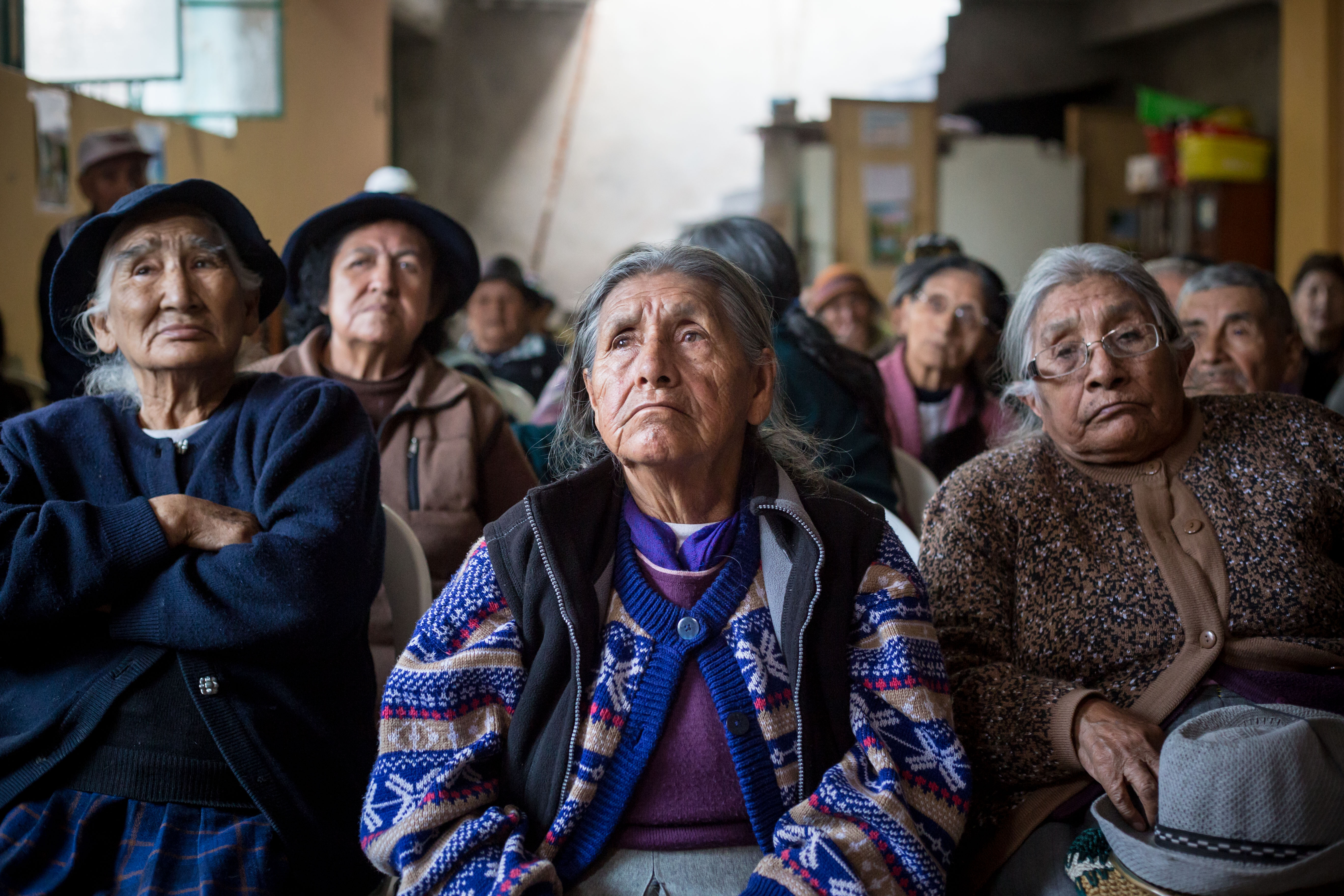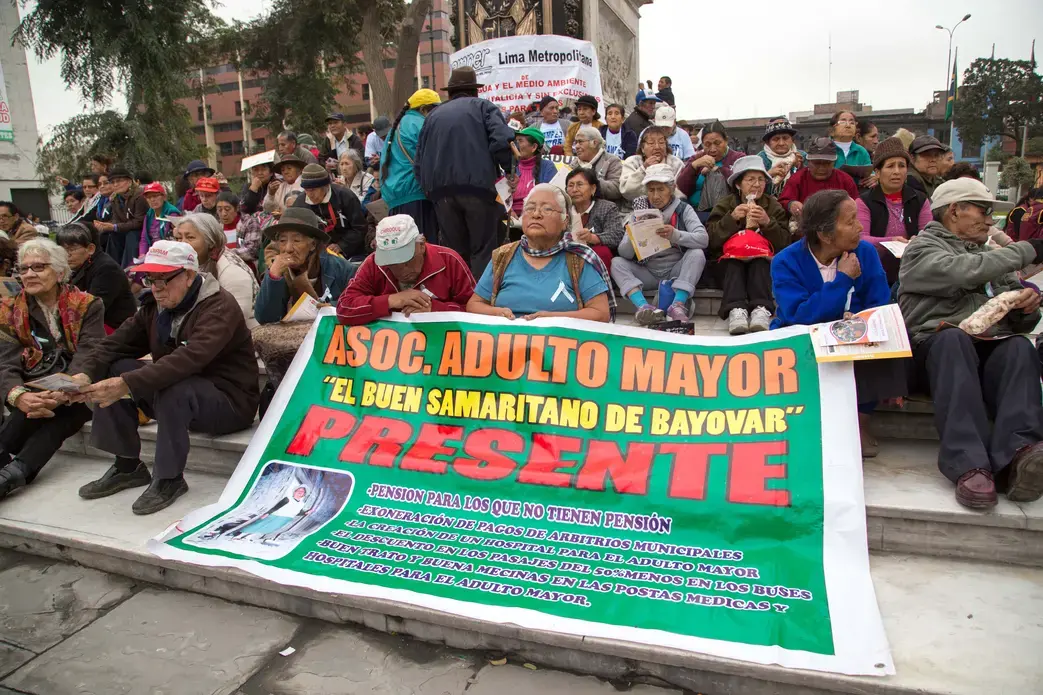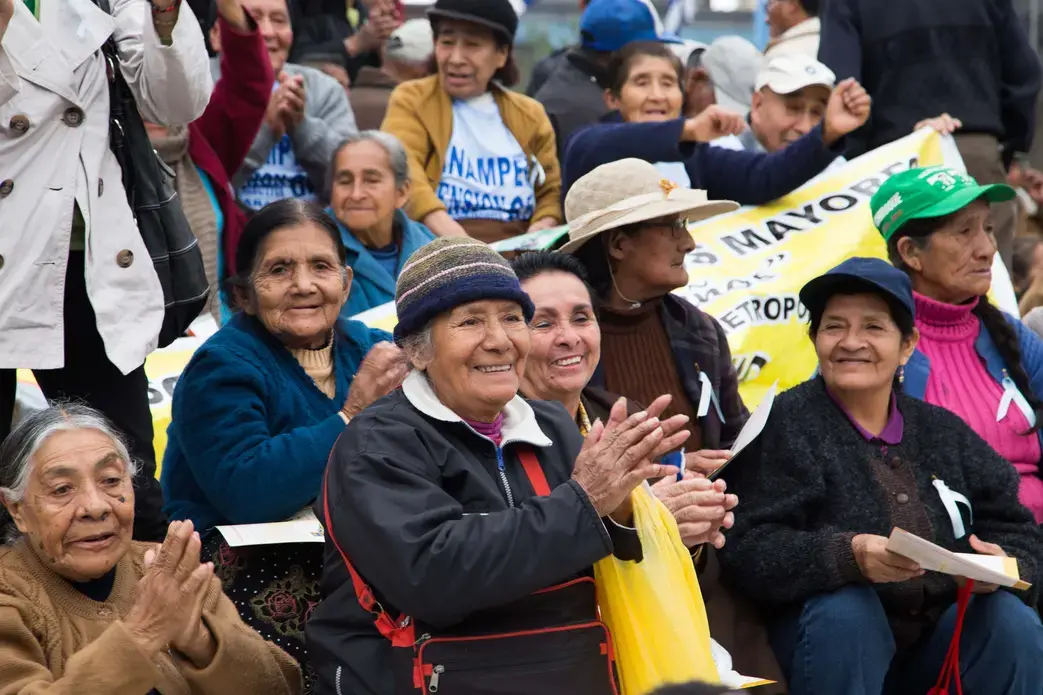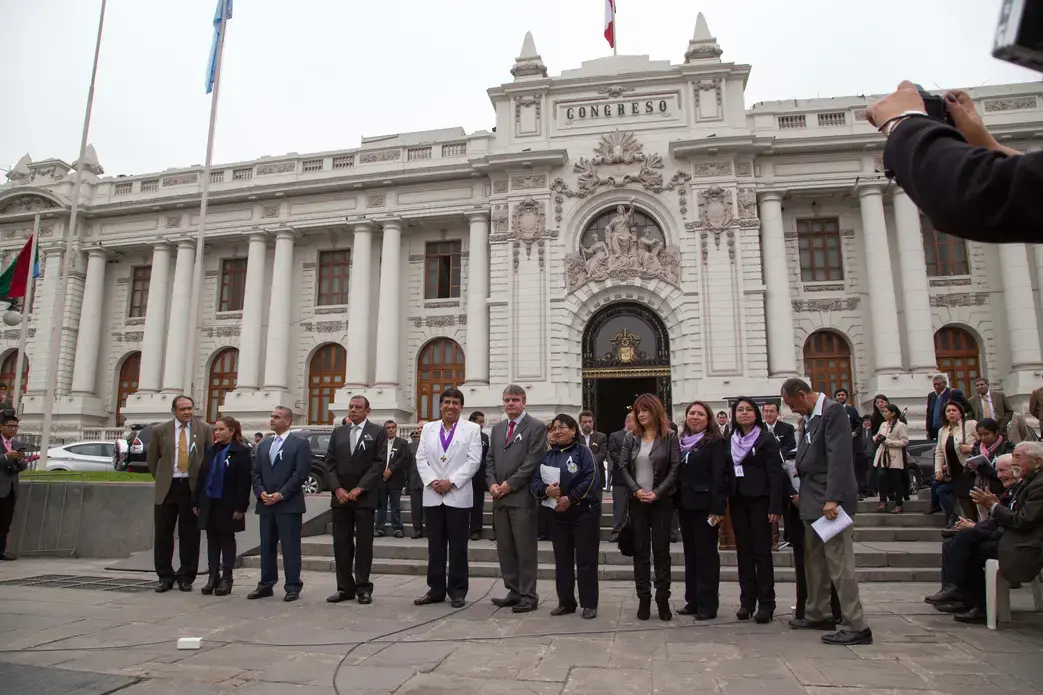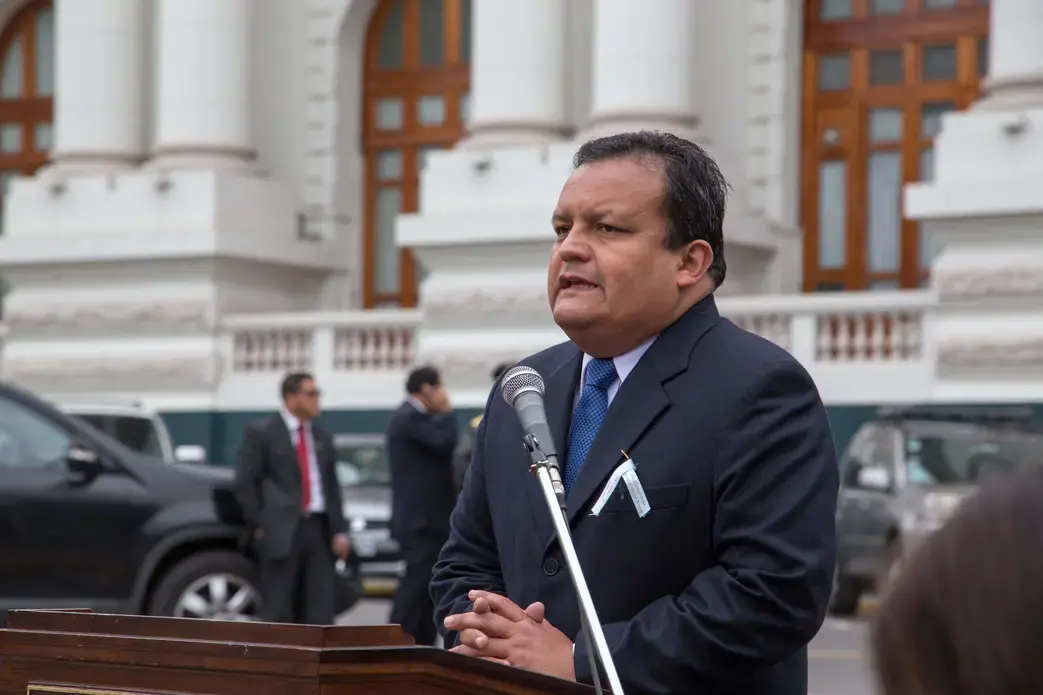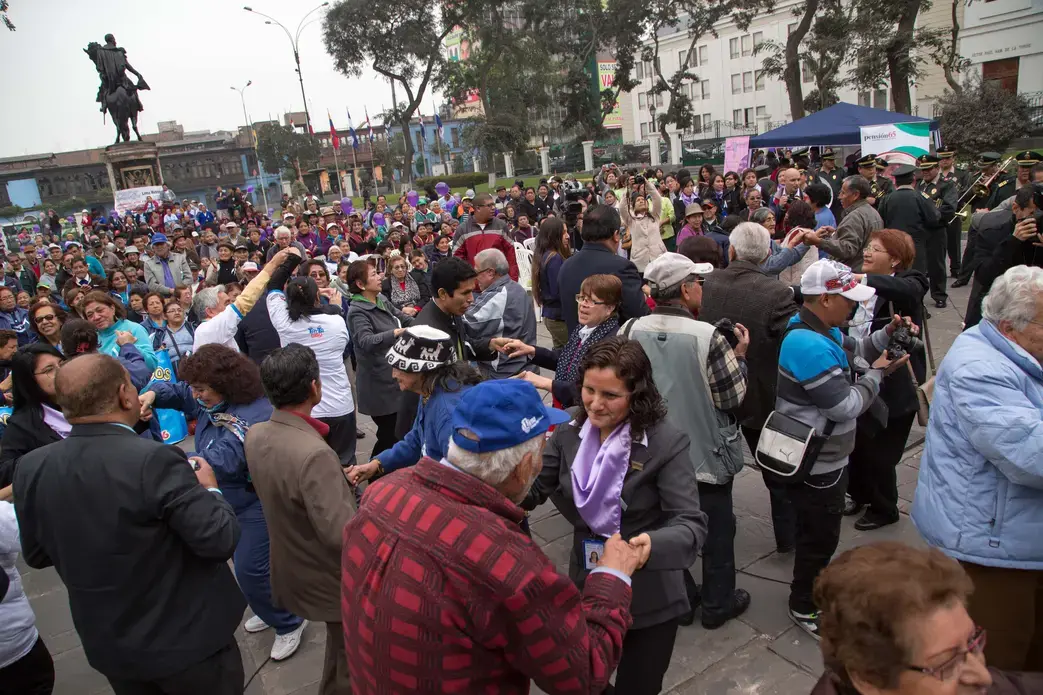In celebration of the Peru National Day of Older Persons on August 26, 2014, hundreds of people gathered in the Plaza Bolivar in Lima to champion the rights of older adults in Peru and reaffirm the importance of effective public policy.
For all the anger and desperate frustration that has been conveyed in private conversations and testimonials, the groups of older men and women were unusually silent as they slowly filled the plaza. Arm in arm, the weary bodies, weighed down by thick layers of winter wool, sauntered slowly to the terraced marble steps where they found momentary respite.
Despite an official start time of 9 a.m., the organizers struggled to keep to the schedule. At an event that supposedly addressed the needs and rights of older adults, no one had bothered to arrange chairs for the hundreds of seniors present. People now scrambled left and right to respond.
Back on the steps, no one seemed bothered. After all, these older adults were used to waiting.
State of Peru's Older Persons
Peru represents one of the countries in Latin America experiencing a rapid aging of the population. According to figures from the Peru National Institute of Statistics and Informatics (INEI), in 2014 older persons represent 9.4 percent of the total population. This percentage is projected to increase to 11.2 percent by 2021.
This trend is reflective of a global shift towards an aging population; by 2050, the number of older persons in developing countries is expected to double.
Despite the growing numbers of older adults in Peru, concerns over low quality of life and human rights abuses of older persons persist.
"I live alone at the top of a mountain. I collect plastic bottles to survive. I don't know how to read and write," lamented Epifania Patinio Campos, 67, one of the attendees at the Plaza Bolivar demonstration. "Life is very hard."
Elder abuse and neglect, financial insufficiency, and poor standards of living have been reported among Peru's older populations. A survey conducted among older persons in 2012 by HelpAge International revealed that 42 percent of older adults reported experiencing stealing of money, property or possessions; 34 percent had been put down, belittled, degraded, humiliated or shamed; and 40 percent of respondents reported experiencing at least one type of physical abuse since the age of 50.
"The number of seniors is increasing. If their problems are not solved now, they will be worse in the future," said Mario Vilcatoma Pillaca, President of the National Association of Organizations on Older Adults in Peru (Red-ANAMPER), in his speech. "Older people do not have any flag, nor any political affiliations. What we want is, as human beings, to collaborate so that this society progresses."
Improving the Legal Framework – A Time for Change?
The event represents the first time that a public demonstration on the rights of older persons has ever taken place in Peru—a peculiar observation when one notes that older people have been on the national agenda since the early 2000s, when the Ministry of Women and Vulnerable Populations first highlighted the plight of older people in Peru.
Many are quick to point out the successive gains during the intervening years. The #28803 Law on Older Persons, passed in 2006 after four years of debate, provides a legal instrument that enables older adults an improved quality life. Since 2011, Peru's Pensión 65 program has provided a monthly income of 125 nuevos soles ($47) to provincial households with one older member and 250 nuevos soles ($94) to those with two older people. Programs like Vida Digna support homeless older adults on the streets. There is even a National Plan for Older Adults 2013-2017.
These achievements do little to mask the widespread perception that not enough has been done. The Law on Older Persons #28803, in particular, has been criticized for lacking formal instruments for implementation and protection of older adults.
In response to this perceived gap, Congressman José Urquizo Maggia's announced at the demonstration the creation of a Consultative Committee on the Implementation and Evaluation of Public Policies on Older Persons, as well as a newly drafted bill to expand on the existing Law on Older Persons (No. 28803).
Proposed amendments include the reassessment of property taxes for older adults, a 50 percent discount in public transportation fees for older adults, and job creation for the older population. The drafted bill is now under review by the Ministry of Women and Vulnerable Populations.
"Aging should not be seen as a disease but rather as a natural and irreversible process, which presents a challenge to the state in the design and implementation of differentiated public policies according to the interests and needs of this population," said Congressman Maggia.
Hesitant Hope
Throughout the plaza, the sentiment most commonly expressed was that actions speak louder than words. Whether or not these bills and committee decisions are translated into reality will take time to tell.
Carlos Alarcón Aliaga, President of HelpAge Peru, is hopeful. He notes that political will for older people's issues seems to be gaining momentum. "One notable thing is the presence of media. The movement is getting attention now and we hope it will reach newspapers and television. There have been more congressmen at this event and we hope it means they will achieve more in Congress," Aliaga said. "All in all, it was a successful, extremely important event."


